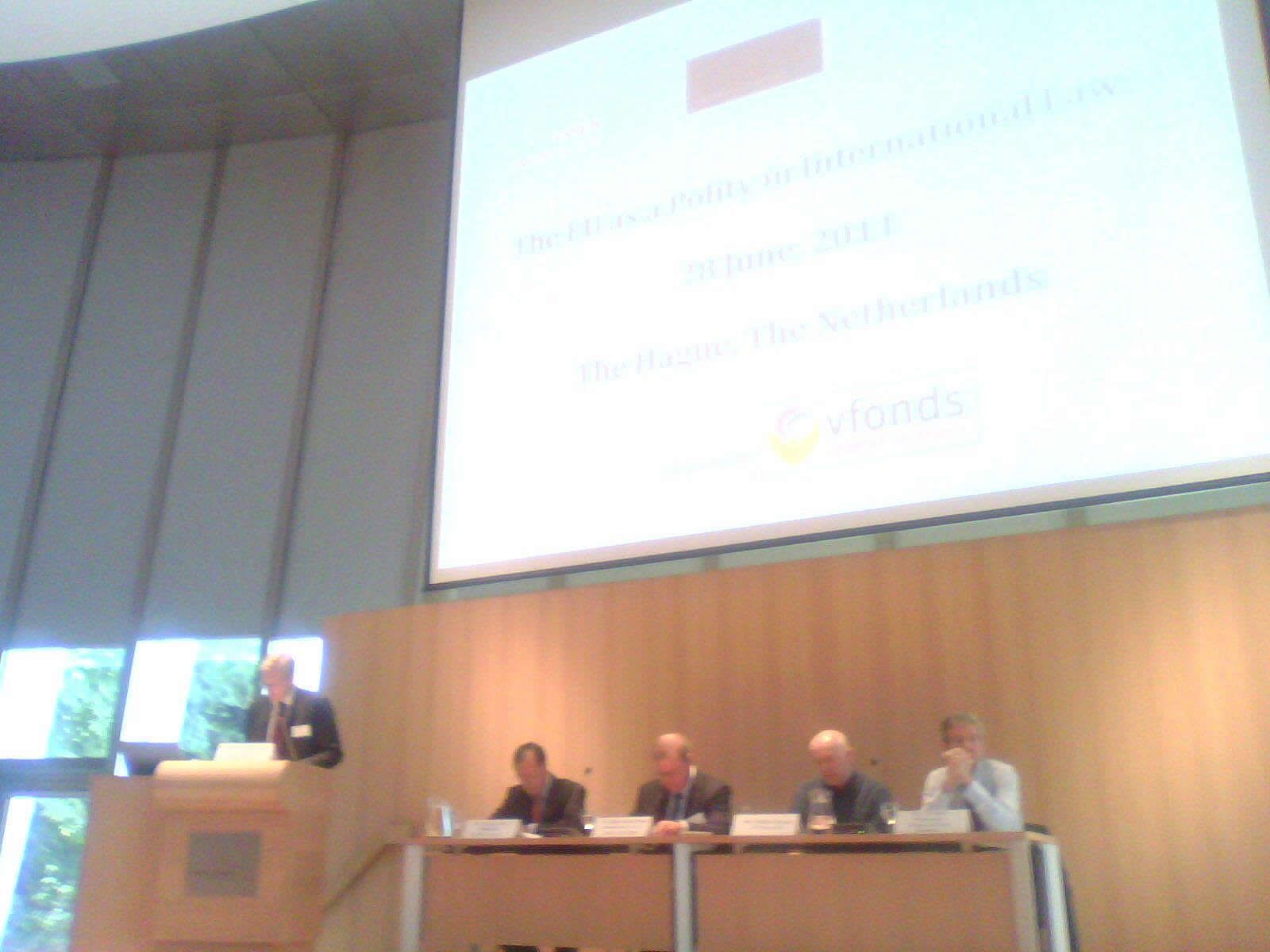As a political entity, however, the EU also aspires to be a democracy of its own. The Lisbon Treaty signifies a major development in this respect as it places the functioning of the EU upon the principles of representative democracy, while it simultaneously emphasizes the sovereignty of the member states. The paradoxical outcome of the process of European integration is therefore that the EU has not become a state and yet forms a democracy.
The purpose of the presented essay 'The EU as a democratic Polity in International Law' is to analyse how the EU has gradually evolved into a democratic polity of states and citizens. By combining the disciplines of international law and political theory, the analyses provides ample arguments for the conclusion that, following the entry into force of the Lisbon Treaty, the EU may be described as a Union of democratic states based on the rule of law, which also constitutes a law-bases democracy of its own.
Responsible for the pedestrian part of program: a description of the status of the EU in international law; the view 'from the outside'.
30 Years of teaching experience in EC/EU law - research interests in international law 'proper', thus I might achieve a somewhat balanced view.
1973 - 2003 first-hand observation of the "widening and thickening" of EC/EU law and its reception by (German) domestic/constitutional law: case law on freedom of movement, Solange I, Solange II etc. French FM Chevenement 2000: "Europe is thing for which lawyers have no name". True? Maybe for Community lawyers, but not for international lawyers. But let first the relationship between EU law and international law over time be described: a narrative of 'emancipation' (encyclopedia?). Development driven by jurisprudence of European Courts. Original situation: ECT a treaty like others )position of MS in early ligitation). For a part of the literature emancipations has been achieved. Example A. von Bogdandy: EC/EU law = autonomous legal order of an internal (i.e. non-international law) character with federal structure. Since Lisbon this is also the case for ESDP policy and the former Pillar III (judicial cooperation). Autonomy also from domestic law calls for the hierarchical priority/superiority of EC/EU law over domestic law (achieved by jurisprudence).
"Constitutionalization" of EC/EU law: Treaties having cut the 'umbilical cord' with international law? No! Link to international law remains present/visible (maybe painfully so): processe of treaty amendment/admission of new members/ Question of withdrawel (Greenland) and dissolution. Recent disregard for treaty limits in the financial crisis.
Cf. faltering of the 'constitutional' approach to revision of Maastricht Treaty 2000 ff. |


